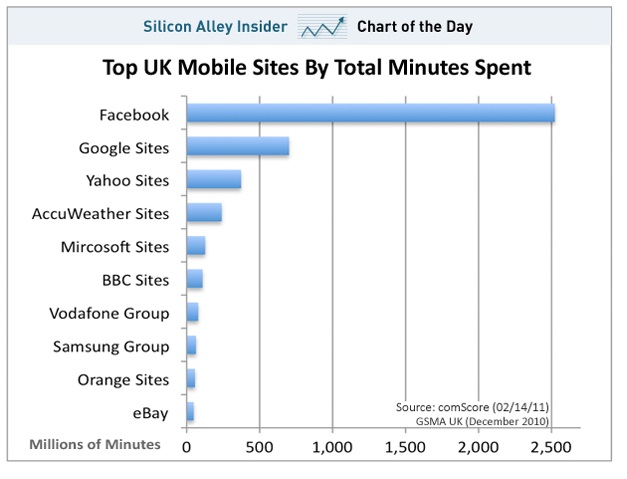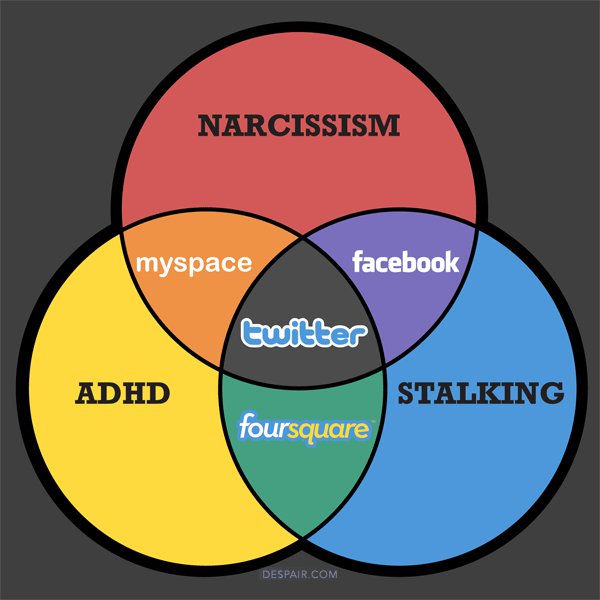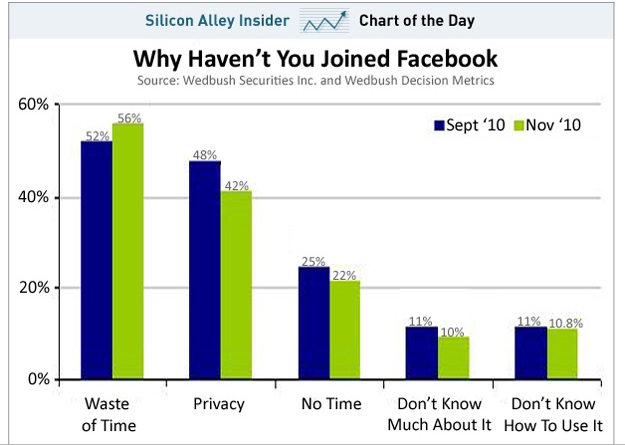Saturday’s FT had an uncharacteristically feeble piece about the future of social networking which was masquerading as a profile of young Zuckerberg. Mark Suster’s Social Networking: The Future provides an instructive contrast — and a dose of historical perspective.
I know that in 2010 it seems ridiculous to say anything other than “Facebook has won—the war is over” and I know that it feels that way right now. Facebook is so dominant it is astounding. In a complete return to where we all began with AOL—the world is “closed” again as Facebook has become this generation’s walled garden. When you’re on Facebook you’re not on the Internet—you’re on the InterNOT. It is an amazing service and I use it regularly myself (although much less than I use Twitter). But it makes me laugh to now see so many brands advertising their “fan pages” as they did their AOL Keywords back in the day. Plus ça change …
Well, here’s a quick history primer that may change your mind:
* In 1998 the Department of Justice launched an anti-trust case against Microsoft. People feared they were going to have a monopoly over the Internet due to “bunding” Internet Explorer with their operating system. A bit laughable in 2010, just 12 years later. These days people would sooner fear Apple than Microsoft, proving that reality is stranger than fiction.
* In April of 2000 there were fears that the AOL / Time Warner merger would create a monopoly on the Internet. As you know, Time Warner eventually spun off AOL for peanuts. AOL is in the process of rebuilding itself and emulating a little-known LA-based startup called Demand Media. AOL seems to be doing great things to reinvent itself under the leadership of Tim Armstrong, but monopoly? Never.
* In May 2007 there were fears that Google was becoming a monopoly. It controlled two-thirds of all Internet searches in the US and as we all knew—search was inevitably going to be the portal to finding information on the Internet. Or was it? We now know that social networking is having a profound impact on how we discover and share content online.
* So . . . now it is November 2010 and Facebook has more than 500 million users. They have more page views than even Google. More than 10% of all time on the web is now Facebook. They have become a juggernaut in online advertising, pictures, video and online games. And now they want to revolutionize email. It is no doubt that the next decade belongs to Facebook. But the coincidence is that 10 years out will be 2020 and when we look back from that date I’m certain that people will also find a Facebook monopoly a bit laughable…
Yep.


